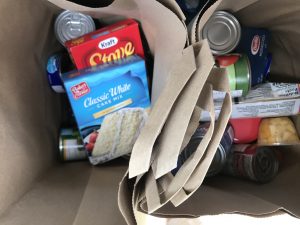A Note from Steve Witt, Director of the Center for Global Studies
In our global studies graduate seminars, we often discuss the pull of the global city: networks of financial transactions, mobility, culture, and higher education. Looking at the scuttled trips for this spring and summer my participation in this phenomena was evident. Canceled were Dublin (two trips), New York and Tokyo for research, and Melbourne for both research and a global studies consortium meeting. Our news of the pandemic also focuses on these major global cities and their valiant efforts to fight the sickness that has overcome so many.
In global studies, we also talk about the rural in terms of both the urban / rural divide regarding resources but also the continued if not amplified relevancy of rural life and rural identity in the midst of globalization. Despite living in a rural setting  and surrounded by small communities, my engagement with the “rural” is typically constrained to these academic discussions. My “normal” routines tend to place these communities in my rear view mirror as I move from campus to home to airports to urban centers and back again.
and surrounded by small communities, my engagement with the “rural” is typically constrained to these academic discussions. My “normal” routines tend to place these communities in my rear view mirror as I move from campus to home to airports to urban centers and back again.
During the “stay-at-home” order my family and I have been volunteering for a local organization called the Diaper Pantry, which supports needy families with donations of diapers, clothes, blankets, and increasingly food. The pandemic has caused this and I presume other organizations to move into a distributed-network mode of delivery. The centralized food-bank suddenly became an obstacle. It is run mostly by retirees, who need to stay home and can’t work with the public. Many of the food-bank clients had similarly become immobile – homebound with kids, illness, fear of contagion.
Now, someone from the food bank delivers pre-packed bags of dry goods to my van. My “handlers” then send me texts with an address, list of needs, and perhaps a short description: victim of domestic abuse, sick and elderly, gravel driveway, use back porch, call first etc…. Before we go, we grab masks, and some of the fresh perishables we have on hand: bread, milk, eggs, bananas, a ham – whatever is at home at that moment. We head out to places on a rural network that is bound by inadequate access to resources and society’s failure to provide basic welfare and infrastructure to people in these increasingly isolated communities. We travel to the drive-past villages we would normally have no reason to stop.
With each trip, I realize that I’m more of a stranger in these familiar towns in my county than the nodes of global cosmopolitanism in which I typically travel. Why is it that I have no acquaintances in towns 10 miles from my house, yet can meet a friend or colleague for a meal in most any global city? I’m greeted (at a distance and generally through a closed door) by proud people who are grateful for a bit of help, happy to see someone, and just as confused by this situation as everyone else. I leave with a new appreciation for my neighbors yet also with a sense of guilt for needing a crisis to bring me here.

Comments are closed.